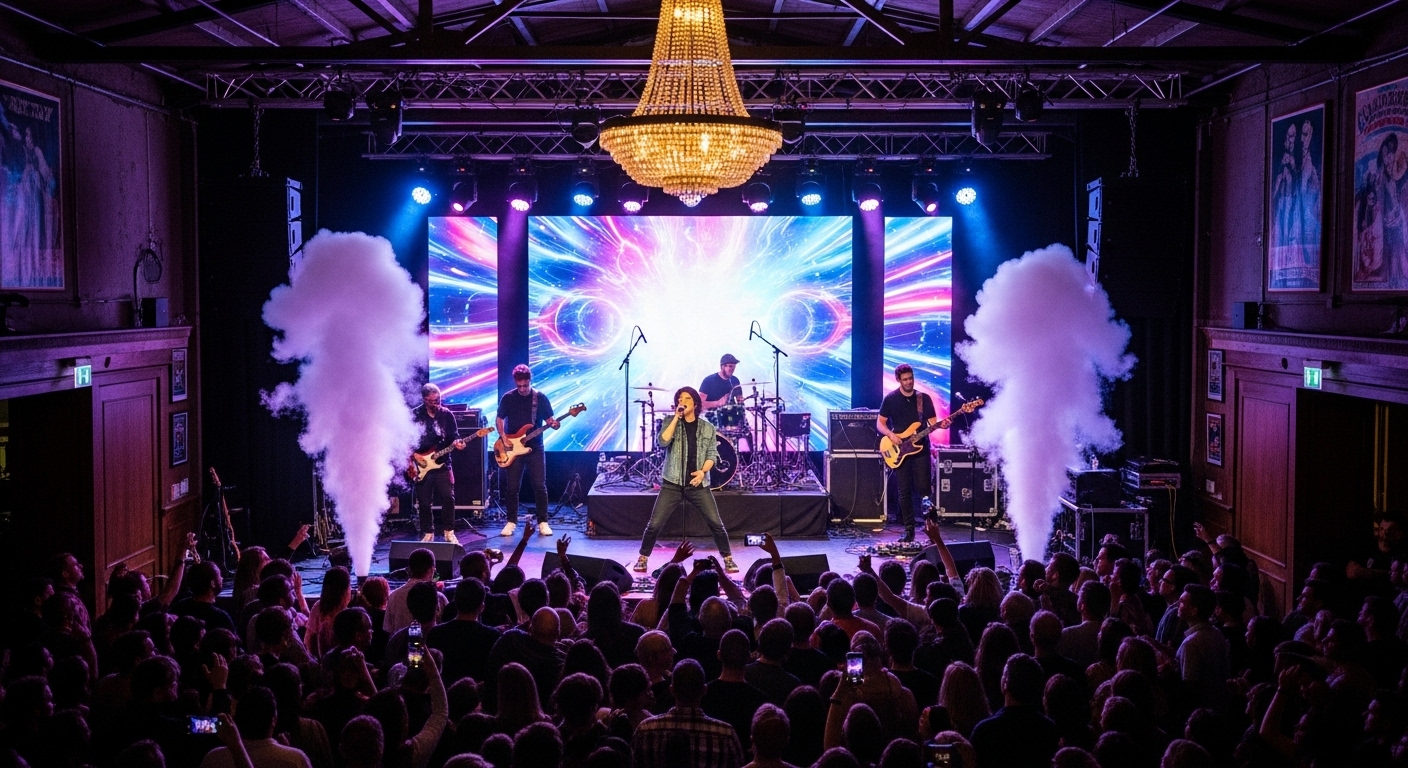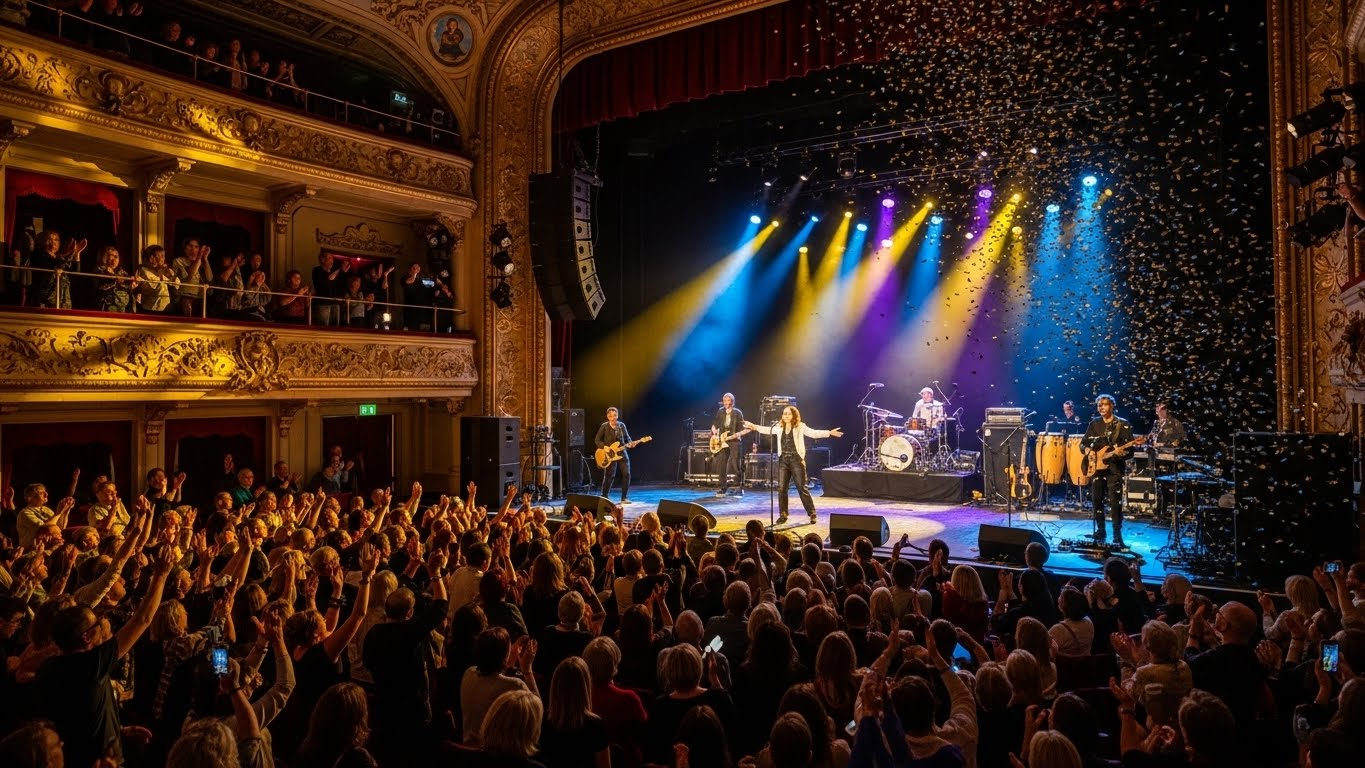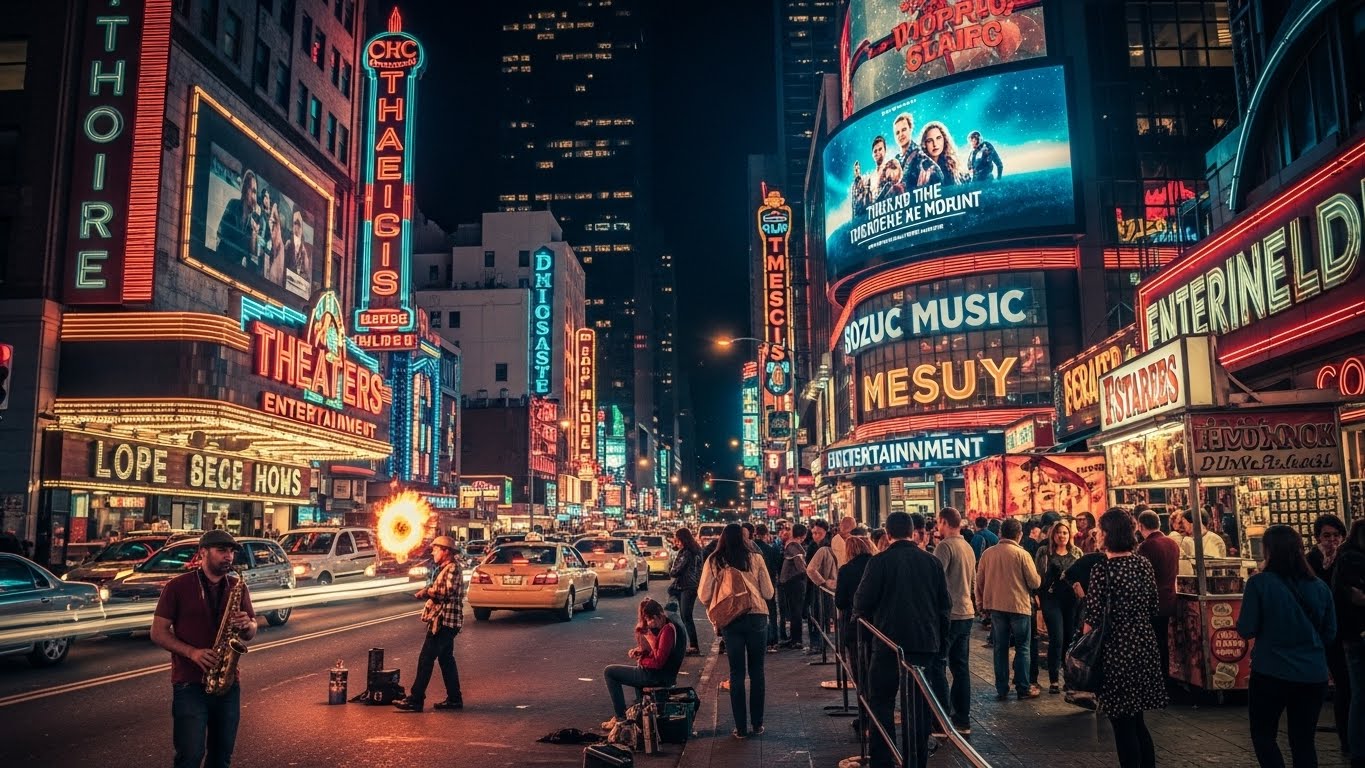Entertainment, as we once knew it, has undergone a dramatic transformation in recent years. Gone are the days when cinema, television, and live performances dominated the cultural scene. Today, a new wave of digital entertainment has emerged, reshaping how we consume content, engage with creators, and experience stories. This revolution isn’t just a trend—it’s a complete overhaul of the entertainment industry, driven by technological innovation, evolving consumer habits, and a shift toward global accessibility. In this post, we’ll dive into the key factors that have contributed to this change and explore where entertainment is headed in the future.
The Rise of Streaming: Redefining How We Watch
One of the most significant changes in the entertainment industry is the shift from traditional broadcast and cable television to streaming platforms. Services like Netflix, Disney+, Amazon Prime Video, and Hulu have completely transformed how we watch movies and TV shows. No longer bound by fixed schedules or geographic limitations, viewers now have access to vast libraries of content at their fingertips.
The rise of streaming has not only given viewers more control over what, when, and how they watch, but it has also led to the decline of traditional media consumption methods. Cable subscriptions are down, and physical media like DVDs and Blu-rays are becoming relics of the past. What’s more, streaming platforms have introduced the concept of binge-watching—an entire season of a show released at once, allowing viewers to watch at their own pace. This on-demand format has fundamentally changed the way stories are consumed and has even influenced the way content is created.
The Power of Social Media: From Content Consumers to Creators
While streaming has revolutionized how we watch content, social media has completely reshaped the entertainment ecosystem by giving anyone the ability to be a creator. Platforms like YouTube, TikTok, Instagram, and Twitter have provided an outlet for millions of individuals to share their talents, ideas, and stories with a global audience. This democratization of content creation has led to the rise of influencer culture, where individuals with massive followings can monetize their content, collaborate with brands, and even shape trends.
The influence of social media is not limited to amateur creators. Many traditional celebrities and entertainers now use platforms like Instagram and Twitter to connect directly with their fans, bypassing the traditional media gatekeepers. This shift has given fans a sense of intimacy and accessibility that was once reserved for behind-the-scenes industry professionals. Social media has, in many ways, blurred the line between creator and consumer, making entertainment more interactive and participatory than ever before.
Gaming: The New Frontier of Interactive Entertainment
Another sector that has seen incredible growth in recent years is the gaming industry. Video games, once considered a niche hobby, have now become one of the largest and most lucrative forms of entertainment in the world. Titles like Fortnite, Minecraft, and The Legend of Zelda have amassed millions of players, and gaming has evolved into a form of interactive storytelling.
The convergence of gaming with other forms of entertainment, such as film and television, is creating new immersive experiences for audiences. Live-streaming gaming platforms like Twitch and YouTube Gaming have turned gaming into a spectator sport, with millions of fans tuning in to watch their favorite players and teams compete. Esports, or competitive gaming, has exploded in popularity, with professional tournaments now drawing crowds in the tens of thousands and offering prize pools that rival those of traditional sports.
Furthermore, the integration of virtual reality (VR) and augmented reality (AR) technologies into gaming has opened up entirely new ways to experience and interact with virtual worlds. As these technologies continue to improve, we can expect gaming to become an even more immersive and engaging form of entertainment, blurring the lines between reality and the digital universe.
The Growth of Interactive and Immersive Experiences
While gaming is a key player in interactive entertainment, there are also other forms of immersive experiences gaining popularity. Virtual reality (VR) and augmented reality (AR) have opened up entirely new possibilities for entertainment, from immersive film experiences to virtual concerts and theme parks. VR has the potential to transport users into fully realized digital worlds, while AR overlays digital elements onto the real world, enhancing our interaction with the physical environment.
One of the most exciting applications of VR and AR is in the realm of live events. Artists and performers have begun experimenting with virtual concerts, allowing fans to experience performances in entirely new ways. These virtual experiences have been made even more accessible by platforms like Oculus and PlayStation VR, which bring the world of immersive entertainment into people’s homes. As technology continues to advance, these forms of entertainment will likely become more integrated into everyday life, offering personalized and dynamic experiences that are limited only by imagination.
The Future of Entertainment: What Lies Ahead?
As we look to the future of entertainment, it’s clear that technology will continue to play a central role. From AI-generated content to the further development of VR and AR, the possibilities are endless. The next frontier may be the integration of artificial intelligence into creative processes. Imagine AI co-creators collaborating with human writers, directors, and musicians to create entirely new forms of entertainment. AI could be used to personalize content experiences, crafting stories or performances that cater to the preferences and tastes of individual viewers in real-time.
Additionally, the global reach of digital platforms means that entertainment is no longer confined to regional markets. Content that was once only accessible to a specific culture or language group can now be consumed worldwide. This has led to a more inclusive, diverse entertainment landscape, with international films, shows, and music gaining popularity on a global scale. The future of entertainment will likely see more cross-cultural collaboration and content that reflects the diversity of audiences worldwide.
Conclusion: A New Era for Entertainment
The digital revolution has completely transformed the entertainment industry. Streaming platforms have made content accessible anytime, anywhere, while social media has empowered individuals to become creators themselves. The gaming industry has exploded in popularity, and immersive technologies like VR and AR are creating new ways to experience entertainment. As technology continues to evolve, the possibilities for entertainment are boundless. We are entering a new era where creativity knows no boundaries, and the audience is not just passive but an active participant in the entertainment experience.
The future of entertainment is digital, interactive, and global, and it promises to be more exciting, immersive, and inclusive than ever before.



